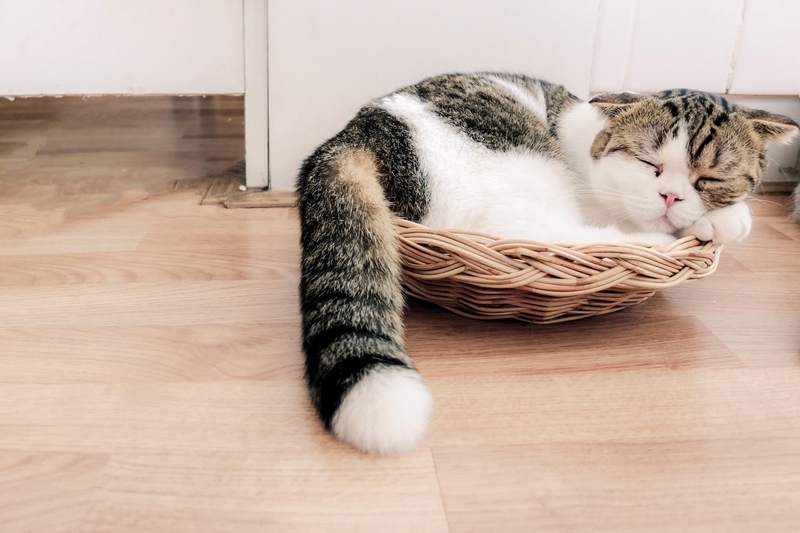How to Improve Your Sleep

Do you get enough sleep at night? Are you sleeping at the proper time? Proper sleep is critical for stress management, weight control and overall health. Inadequate sleep leads to decreased immunity, overeating, poor food choices and disruption in hormones.
Sleep is one of the main factors of having a healthy lifestyle and wellbeing. Getting the right amount of sleep at the proper times helps protect your health mentally and physically. While you sleep your body is working hard to support a healthy brain function, cleanse your liver and support developmental growth in children and teens. Sleep plays an important role in your physical health. For example, sleep is involved in the healing and repair of your heart and blood vessels.
SLEEP DEFICIENCY SIDE EFFECTS
Sleep deficiency also increases the risk of obesity. For example, one study of teenagers showed that with each hour of sleep lost, the odds of becoming obese went up. Sleep deficiency increases the risk of obesity in other age groups as well.
Sleep also helps you maintain healthy hormone balance especially with ghrelin, the hormone that makes you feel hungry and leptin the hormone that signals to your brain that you’re full. When you don’t get proper sleep these hormones can become imbalanced so the ghrelin hormone rises as the leptin hormone decreases.
For children and teens sleep is so important for supporting healthy growth and development. The hormone HGH is released by the brain into the bloodstream during sleep, and its release is part of the repair and restoration function of sleep. This hormone also boosts muscle mass and helps repair cells and tissues in children, teens, and adults.
Another important reason for adequate amount of sleep is for your immune system. The immune system protects your body from any harmful substances that enter the body. During sleep the immune system replenishes itself, so if your body isn’t getting the rest it needs you might have trouble fighting infections.
DAILY STEPS TO TAKE TO GET THAT PROPER SLEEP
Going through life and stressful work days can lead to inadequate amounts of sleep due to stress and other factors. Practicing a few easy tricks will get your body into a sleep routine you deserve! Start by practicing a relaxing bedtime routine, start by detaching from all electronics. Electronics give off blue bright lighting that keeps your body awake, this can also make you stressed which can make it more difficult for you to fall or even stay asleep throughout the night. Daily exercise (Depending on the individual its recommended to workout during the early hours of your day instead of nighttime because working out during the night hours can cause sleeping troubles), hot bath and aromatherapy (lavender oil) are also great stress relievers and can help you sleep well.
FOOD TO EAT TO IMPROVE YOUR SLEEP
Food can also play a role in getting that adequate amount sleep at night that your body needs.
- Cherries are one of the few natural foods to contain melatonin, the chemical that helps control our body’s internal clock, says Keri Gans, a registered dietician.
- Warm glass of milk can help you fall asleep because the milk contains the amino acid tryptophan, a precursor to the brain chemical serotonin.
- Jasmine rice ranks high on the glycemic index, meaning the body digests it slowly, releasing glucose gradually into the bloodstream. A 2007 study in the American Journal of Clinical Nutritionfound that consuming jasmine rice four hours before bedtime cut the amount of time it took to fall asleep in half when compared with eating a high-glycemic-index meal at the same time interval.
- Bananas help promote sleep because they contain the natural muscle-relaxants magnesium and potassium.
- Sweet potatoes are also a great food to help you sleep! Not only do they provide sleep-promoting complex carbohydrates, they also contain that muscle-relaxant potassium. Other good sources of potassium include regular potatoes.
- Ashwagandha can help you get a good night rest by reducing stress. Ashwagandha cuts the amount of cortisol, (a hormone commonly released by the body during stressful situations) which helps your body relax and can promote a relaxing sleep during the nighttime.
FOODS TO AVOID BEFORE YOU SLEEP
Before you sleep you want to avoid caffeine, protein and fatty foods.
- Chocolate contains not only calories, but caffeine, especially dark chocolate. Chocolate contains theobromine, another stimulant that can increase heart rate and sleeplessness.
- Chicken or any type of protein is going to be counterproductive if consumed at night. “Digestion is supposed to slow by about 50% while you’re sleeping but if you eat a lot of protein, you digest more slowly,” explains Rosenberg. Instead of focusing on sleeping, your body is focusing on digesting.
- Alcohol might make you pass out, but you will probably wake up sometime during your sleep dehydrated and feeling thirsty.
- Spicy foods can produce a lot of stomach acid which can lead to heart burn and bloat that can disrupt your sleep
- Fatty Foods digest slowly into your body which means your body will work hard to digest these foods before you sleep that can lead to discomfort and gas.
In conclusion, sleep is at the top of the fundamental pillars that compose a healthy lifestyle. It shouldn’t be neglected… If you have trouble sleeping, you should consult a specialist.
Frances is an amazing health and lifestyle coach whose main goal is to help our community get physically and mentally stronger with every mindful choice we make.










